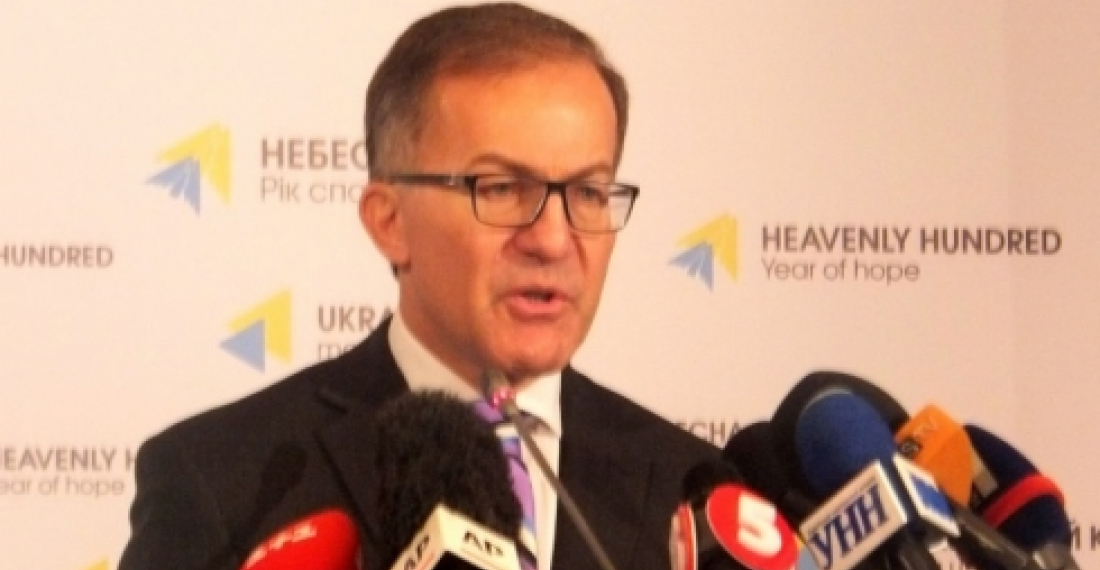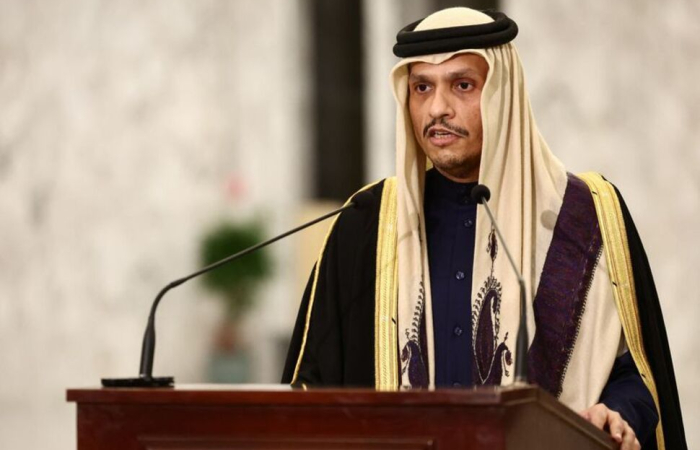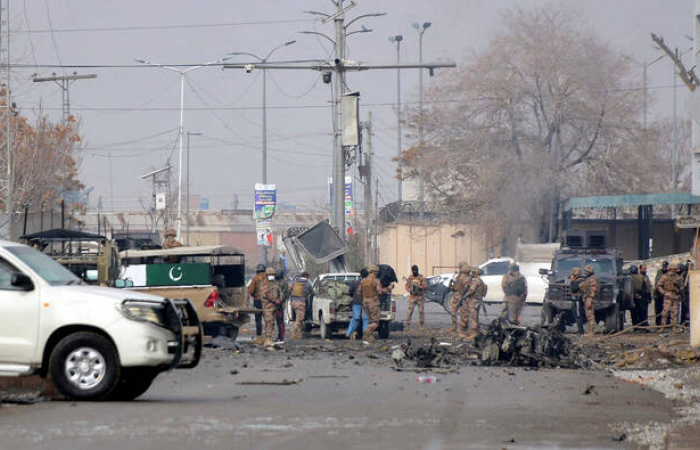by Joseph d'Urso, reporting from Kiev for commonspace.eu.
The chief spokesman of the OSCE Special Monitoring Mission in Ukraine today spoke of “more calm” in the east of the country, two weeks after a ceasefire agreement was agreed in Minsk. He also denied the organisation has lost public trust.
The OSCE’s Special Monitoring Mission (SMM) in Ukraine is mandated to gather information and report facts on the ground. There has been a lull in fighting over the past 24 hours, with no combat fatalities reported on Wednesday. Speaking to journalists in Kiev, spokesman Michael Bociurkiw defended his organisation’s work against accusations it does not sufficiently attribute blame for ceasefire violations, saying the OSCE is “not in the business of naming names and pointing fingers”.
MORE THAN A MILLION DISPLACED
Bociurkiw spoke of the devastation which OSCE monitors observed yesterday in Debaltseve, the town from which Ukrainian troops withdrew on February 18th . “None of the buildings that we saw were untouched by shelling,” he said. “Many villages have been almost totally emptied of the civilian population.” Bociurkiw also referenced a UN report which states “more than a million people have been displaced within Ukraine”.
The OSCE reported seeing a range of ceasefire violations yesterday, including some artillery fire sporadic small arms fire near the city of Mariupol, which is seen as the next potential flashpoint in eastern Ukraine. The OSCE also observed the movement of military equipment. The next challenge is to oversee the withdrawal of heavy weaponry, as specified by the agreement reached in Minsk on 12 February. The places to where heavy weaponry is withdrawn “may need to be visited again and again by the mission for obvious reasons – for credible verification,” Bociurkiw said. “It is not enough to be invited to follow a removal process, it has to be complete. Like the Minsk agreements it is not a shopping list, you can’t pick and choose.”
A MANDATE TO MONITOR
Many in the Ukrainian capital are distrustful of the OSCE. A sticking point is that Russian monitors take part in OSCE patrols, because the Russian Federation is not an official party to the conflict, whereas Ukrainians do not A prime time broadcast of political programme ‘the XFiles’ on Ukrainian cable channel 1+1, which accused the OSCE of Russian bias, has compounded this problem, according to Iryna Ivashko of the International Centre for Policy Studies in Kiev. An incident in September in which two separatist fighters got into an SMM vehicle has been used as evidence of supposed proRussian bias.
The OSCE admitted to and apologised for this incident. Bociurkiw said “I don’t know I’d agree there is widespread cynicism and distrust,” describing ‘dialogue facilitation’ as one of the Mission’s most important background roles. “We’ll soon have been almost a year in Ukraine, and the contribution of the mission is widely known and appreciated,” he said, adding that the OSCE has an active presence active in Kharkiv and Lviv as well as the capital and wartorn eastern regions.
SWIFT AND DECISIVE
Within the international community there has been increased scepticism of the durability of the Minsk agreements. Ilkka Kanerva, president of the OSCE Parliamentary Assembly, said in Copenhagen yesterday "I am profoundly disturbed by the illegal separatists' continuing refusal to grant unlimited, safe access to OSCE monitors on the ground in Ukraine and their violations of the Minsk Package of Measures. “By extension, I am also disturbed by Russia's apparent unwillingness to publicly insist that the rebels immediately allow the monitors access, stop all ceasefire violations and withdraw all heavy weapons. Any attempts by the rebels to threaten the city of Mariupol must be met with a swift and decisive response by the international community.”
It remains to be seen whether the current lull in fighting is temporary, or a lasting ceasefire under the Minsk protocols can be reached. General Philip Breedlove, NATO's top commander, said on February 20. "it is a ceasefire in name only".
source: Joseph d'Urso filed this report from Kiev for commonspace.eu
photo: The Spokesperson of the OSCE Special Monitoring Mission to Ukraine, Michael Bociurkiw at a brieifng in Kiev on Thursday, 26 February 2015.







